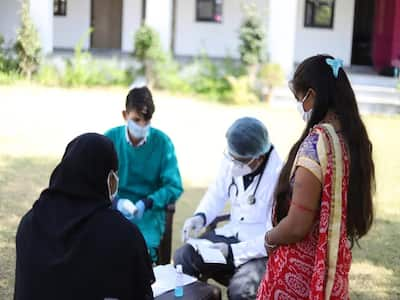
Addressing the logistics challenges in rural healthcare is crucial for bridging the gap in access to quality healthcare services and ensuring a healthier future for all.
Access to quality healthcare is a fundamental right of every individual, regardless of their geographical location. However, residents of rural areas often face significant challenges in obtaining adequate healthcare services due to logistical constraints. The unique combination of limited infrastructure, geographical remoteness, and scarce resources creates a complex web of logistics challenges that must be addressed to bridge the healthcare gap in rural areas.
In this article, Anubha Dixit, Founder and CEO, Tongadive, sheds light on the logistics challenges faced by rural healthcare providers and highlights potential solutions to overcome these barriers.
Limited Infrastructure
One of the primary challenges in rural healthcare is the lack of adequate infrastructure. Many rural areas lack well-equipped healthcare facilities, including hospitals, clinics, and specialized centers. The scarcity of healthcare infrastructure not only hampers the delivery of essential medical services but also affects the transportation and storage of medical supplies, including vaccines, medicines, and diagnostic equipment. Building and maintaining robust healthcare infrastructure in rural areas is crucial to ensuring the smooth flow of logistics in the healthcare .
Geographical Remoteness
Travel to rural areas is often characterized by long distances and challenging terrains, making transportation of medical supplies and personnel a daunting task. Remote locations with limited or inadequate road networks, difficult weather conditions, and rugged terrains pose significant hurdles to efficient logistics operations. Delivering essential medical supplies and ensuring timely access to healthcare professionals in remote areas requires innovative solutions such as using drones or other alternative modes of transportation. Developing reliable transportation networks and exploring technology-driven solutions can greatly improve logistics in rural healthcare.
Limited Resources
Limited resources, both human and financial, pose a major challenge in rural healthcare logistics. Rural healthcare facilities often struggle with inadequate staffing, including doctors, nurses, and technicians. The shortage of skilled healthcare professionals affects the overall delivery of healthcare services and adds to the logistics burden. Additionally, rural healthcare providers face financial constraints that restrict their ability to invest in sophisticated logistics infrastructure and technology. Collaborative efforts between government agencies, healthcare organizations, and NGOs can help alleviate resource constraints and improve logistics efficiency in rural healthcare.
READ RELATED: Can Sleepless Nights Make You Breathless?
Cold Chain Management
Maintaining a reliable cold chain is critical for the storage and transportation of temperature-sensitive medical supplies such as vaccines and blood products. However, rural areas often lack the necessary infrastructure to support an unbroken cold chain. Limited access to electricity, unreliable refrigeration equipment, and inadequate training of healthcare personnel on cold chain management poses substantial challenges. Implementing sustainable cold chain solutions, such as solar-powered refrigeration units and training programs for healthcare workers, can enhance logistics capabilities and ensure the availability of life-saving medications in rural areas.
Information and Communication Technology (ICT)
Effective communication and information flow are vital for efficient healthcare logistics. However, rural areas frequently lack robust ICT infrastructure, including internet connectivity and telecommunication networks. Limited access to real-time data, patient information, and supply chain tracking systems hampers the coordination and management of healthcare logistics in rural areas. Implementing cost-effective ICT solutions, such as mobile applications and telemedicine platforms, can enhance communication, streamline logistics processes, and enable remote consultation and diagnosis.
Summary
Addressing the logistics challenges in rural healthcare is crucial for bridging the gap in access to quality healthcare services. Overcoming limited infrastructure, geographical remoteness, resource constraints, cold chain management issues, and inadequate ICT infrastructure requires a multi-faceted approach involving collaboration between government bodies, healthcare organizations, and technology providers. By leveraging innovative solutions, investing in healthcare infrastructure, and empowering local communities, we can improve logistics efficiency and ensure equitable access to healthcare for rural populations. Only through collective efforts can we successfully bridge the gap in rural healthcare and ensure a healthier future for all.
Total Wellness is now just a click away.
Follow us on
window.addEventListener(‘load’, (event) => {
// $(document).ready(function(){
$(‘#commentbtn’).on(“click”,function(){
(function(d, s, id) { var js, fjs = d.getElementsByTagName(s)[0]; if (d.getElementById(id)) return; js = d.createElement(s); js.id = id; js.src = “//connect.facebook.net/en_US/sdk.js#xfbml=1&version=v2.3”; fjs.parentNode.insertBefore(js, fjs);}(document, ‘script’, ‘facebook-jssdk’));
$(“.cmntbox”).toggle();
});
// });
});







